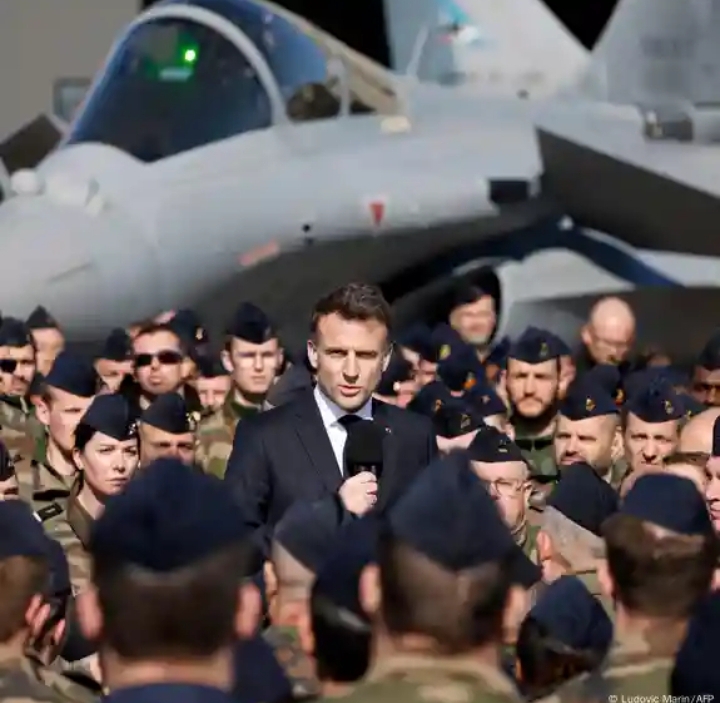French President Macron expressed openness to discussing the deployment of France's nuclear weapons in Europe, highlighting that any such expansion would be conditional on maintaining France’s defense capabilities and control over the weapons. This comes amid concerns over US nuclear commitments and Russia’s threat to Europe. Macron stressed that France aims to avoid escalating tensions with Russia, while supporting Ukraine's defense.
Macron Open to Deploying French Nuclear Weapons in Europe


French President Emmanuel Macron stated on Tuesday that he is open to discussions about the potential deployment of France's nuclear weapons in other parts of Europe. His remarks came during an interview with French broadcaster TF1 that evening.
Macron highlighted that the United States already has nuclear-armed aircraft stationed across Europe, including in Belgium, Germany, Italy, and Turkey. "The Americans have the bombs on planes in Belgium, Germany, Italy, Turkey," Macron said. "We are ready to open this discussion." He added that he would outline the specific framework for these discussions in the coming weeks and months.
During the interview, Macron clarified that any expansion of France's nuclear deterrence to other European countries would be conditional. As the European Union's sole nuclear power, France would not bear the responsibility for the security of other nations, and its own defense capabilities must remain fully intact. Additionally, Macron emphasized that the ultimate control over the use of France's nuclear weapons would remain solely with the French president.
As of 2024, France is reported to possess approximately 280 nuclear warheads, according to the Stockholm International Peace Research Institute (SIPRI). The French military has the capability to launch these warheads independently from submarines or deploy them via aircraft.
The United Kingdom also maintains nuclear weapons, with around 225 warheads in stock. However, the UK's Trident nuclear submarine program is closely linked to the United States' nuclear system, relying on US support for maintenance. This connection has raised concerns about the independence of the Trident program, according to the UK think tank Chatham House.
Macron previously proposed in March the idea of holding discussions with European allies about how France's nuclear weapons could be used to protect Europe. His comments come amid growing concerns among European leaders about the reliability of the United States' nuclear commitment to Europe, particularly in light of the ongoing Russian threat to the continent.
Germany’s Chancellor Friedrich Merz has also expressed interest in hosting French nuclear weapons. However, he emphasized during a joint press conference with Macron last week in Paris that this would not be a replacement for the nuclear guarantee currently provided by the United States. Merz has also stated that Germany cannot and must not have its own nuclear weapons. Currently, up to 20 US nuclear weapons are stationed at a German military airbase.
Other European countries, including Poland, Denmark, and Lithuania, have expressed openness to the idea. Polish Prime Minister Donald Tusk stated in March that Poland was "talking seriously" with France about the possibility of being protected by French nuclear weapons. This interest is particularly strong in Eastern Europe, where concerns over Russian aggression, heightened by its invasion of Ukraine, have led to discussions about strengthening defense capabilities.
Despite this, Macron has been cautious about escalating tensions with Moscow. In the same interview, he emphasized that France does not want to provoke a global conflict over Russia's war in Ukraine. "We must help Ukraine defend itself but we do not want to unleash a Third World War," Macron said. He stressed the need for the war to end and for Ukraine to be in the best possible position to engage in negotiations.

 বাংলা
বাংলা  Spanish
Spanish  Arabic
Arabic  French
French  Chinese
Chinese 
